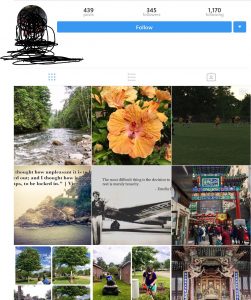Optimal SEO – Max Finch
dOptimal SEO

Creating optimal SEO can be a daunting task for many. Questions may arise such as “where do I start?”, “what do I add?”, “what does and doesn’t work?”, etc. SEO may seem like a daunting task, and initially it may be. But in reality SEO is more time consuming than anything. The goal of this guide is to cut down on wasted time and provide a tool to make SEO optimization easier.
First off, SEO, abbreviated for Search Engine Optimization, is essentially a complex version of hashtaging your Facebook, Twitter, or Instagram posts. Just like on social media, SEO has a lot to do with the content of your website. Additionally, unique and compelling content tends to stand out and do well rather than copy and paste or low quality content. The look and feel of your website has a lot to do with SEO ranking as well. Everyone agrees that visually appealing content sells whether on social media, websites, or advertisements.
Without further ado, here are 7 important rules for optimal SEO.
Bounce Rate and Content
An important factor in SEO which helps control your bounce rate and uniqueness is your content. Text heavy, un-intelligble content will suffer much more than content arranged in lists, shorter paragraphs, and maybe even when associated with imagery and video.
Content which doesn’t flow, isn’t themed well, looks copy and paste, or generally makes the reader seek another source will result in a bounce back which Google tracks. If Google catches high volumes of bounces, they will push your content down the feed.
For an example, we can look at two Instagram pages (to make things easy to understand)
Our first page will be a random Instagram account, of which I’ve kept their info excluded.
 This users page is jumbled, has no specific content, and probably see’s a high rate of bounce back when others view this page (though I’m sure this is more personal than focused).
This users page is jumbled, has no specific content, and probably see’s a high rate of bounce back when others view this page (though I’m sure this is more personal than focused).
To compare, I have screen shotted @fursty on Instagram

Dylan is obviously more focused than the other user. But we see not only a uniform theme, but uniform colors and beautifully executed content. Dylan probably sees much less bounce rate and as a result see more followers and impressions in his content.
Of course, SEO and Instagram aren’t fully the same, but picture those Instagram accounts as full fledged websites. Which website would you be more interested in?
Tags
Like hash tags, tags for SEO work to help search engines bring valuable content to people. There are two approaches for tagging your page.
- Fat Head Approach
- Long Tail Approach
Fat Head
Works by including general, heavy competition based keywords to your website. The pro of a fat head approach is a smaller need to continually optimize your keywords. The con, which is a major con, is the huge competition for those keywords.
Ex: “SEO”, “Guide”, “Blog”
Long Tail Approach
Works by including more detailed keywords with much lower competition. The pros for long tail is a much higher rate of success, but the cons include more attention to updating and keeping them relevant.
Ex: “Optimal SEO for 2018”, “Easy guide for optimizing your SEO”, “How to make your website seen using SEO”
In my opinion, I feel it would be best to use both approaches. Focus on long tail keywords with few results and hope they boost your exposure on the fat head keywords.
Best Practices
If you add imagery in your content, which you should, remember to add alt tags. This is alternative text so users with, say slow country wifi, know what the image is supposed to be.
Like any paper you would print and hand out, you’d want to include a title for your content. Keeping it short enough to fit on a Google search but long enough to give a reader the best idea of your post is essential.
Is there a section on your page that is extremely important for your readers? Make sure you use a H1 tag to clearly define your content.
Lastly make sure you add a meta description to your pages. Meta gives a brief summary about what your page is about after they make their search.
Finished reading? Go back to my homepage here
